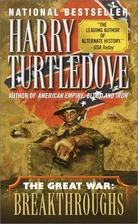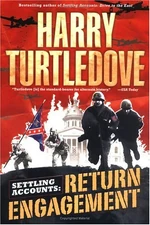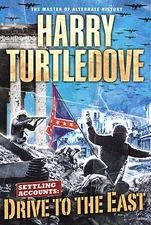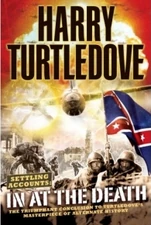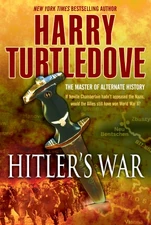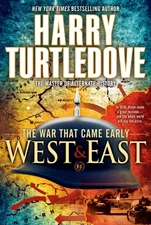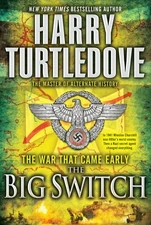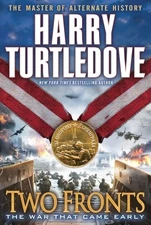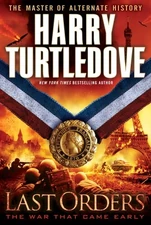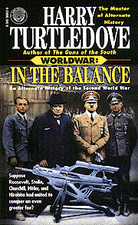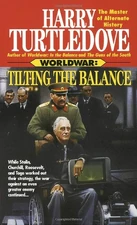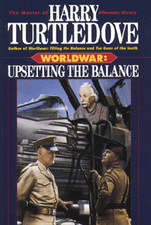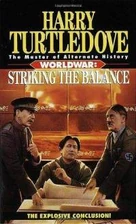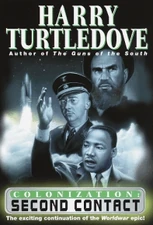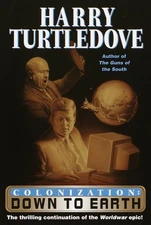| Benito Mussolini | |
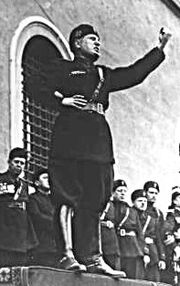
| |
| Historical Figure | |
| Nationality: | Italy |
| Year of Birth: | 1883 |
| Year of Death: | 1945 |
| Cause of Death: | Execution by firing squad |
| Religion: | Atheism, officially converted to Catholicism in 1927 |
| Occupation: | Author of Fiction, Educator, Print Journalist, |
| Spouse: | Ida Dalser (separated secretly, never divorced), Rachele Mussolini |
| Children: | Six |
| Military Branch: | Royal Italian Army (World War I) |
| Political Party: | Italian Socialist Party (1901-1914) Italian Fascist Party (1921-1943) Republican Fascist Party (1943-1945) |
| Political Office(s): | Foreign Minister of Italy, Prime Minister, Duce of the Italian Social Republic |
| Fictional Appearances: | |
Benito Mussolini (29 July 1883 – 28 April 1945) was an Italian politician, journalist, and leader of the National Fascist Party, ruling the country as Prime Minister from 1922 until his ousting in 1943. Known as Il Duce ("the leader"), Mussolini was one of the key figures in the creation of fascism as an ideology.
Mussolini initially ruled constitutionally at the invitation of the king, Victor Emmanuel III. In 1925, Mussolini dropped all pretense of democracy and set up a legal dictatorship, answerable only to the king, who was content to let Mussolini establish a police state throughout the remainder of the 1920s. In the 1930s, Mussolini embarked on a more aggressive foreign policy, launching an invasion of Ethiopia in 1935, beginning an occupation that lasted until 1941. With sanctions imposed by the League of Nations, Italy began an alliance with Adolf Hitler's Germany and, along with Hitler, co-founded the Axis. Although initially wary of his ally, Hitler, Italy joined with Germany in World War II, officially entering the war in 1940.
Mussolini had gambled that with France out of the war, he could reach an armistice with Britain that secured North Africa for Italy--while Italian forces in North Africa outnumbered the British, Italy didn't have the resources to fight a long war. Britain was unwilling to enter any agreement that recognized Axis gains in Europe. Despite the ongoing war with Britain, Mussolini sent troops to participate in the invasion of the Soviet Union in June, 1941 and declared war on the United States in December.
The year 1943 saw a series of disasters for Italy, including the loss of the entire Italian Army in the USSR. On July 9, the Allies invaded Sicily, and the German summer offensive had plainly failed by July 16th. On July 25, the Grand Council of Fascism voted no confidence in Mussolini, and later that day, King Vittorio Emmanuel dismissed him as head of government and had him placed in custody.
Mussolini was rescued from incarceration by German officer Otto Skorzeny, and, at Hitler's behest, became the dictator of a puppet state called the Italian Social Republic in northern Italy. The Republic collapsed as Allied forces drove north. In April, 1945, Mussolini and his mistress, Clara Petacci, were captured by Italian communists as they attempted to escape to Switzerland. They were summarily executed by firing squad on April 28. His body was hung upside down at a petrol station near Milan for public viewing and to provide confirmation of his demise. The Italian Social Republic collapsed with Germany's surrender in May, 1945.
Benito Mussolini in Worldwar[]
| Worldwar POD: May 30, 1942 | |
| Appearance(s): | In the Balance through Striking the Balance |
| Type of Appearance: | Direct and contemporary references |
| Date of Death: | Unrevealed |
| Political Office(s): | Prime Minister of Italy |
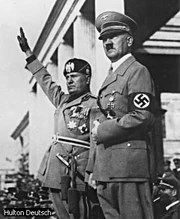
Mussolini and Adolf Hitler
Benito Mussolini supported Adolf Hitler's war against the Soviet Union, the United States, and Britain.
In the spring of 1942, Mussolini was overthrown when the Race's Conquest Fleet overran Italy.[1] Mussolini collaborated with the Race, leading the members of the Big Five to call for his assassination despite Joachim von Ribbentrop's halfhearted attempt to speak on his behalf.[2] However, Mussolini was instead liberated by a daring SS raid commanded by Otto Skorzeny.[3] He was taken to Germany[4] and ultimately found himself in the United States.
In 1943, he traveled with General Dwight Eisenhower and Albert Einstein, to Couch, Missouri where they conferred with Dr. Robert Goddard, and examined the components of a Race shuttlecraft.[5]
Mussolini's propaganda broadcasts did much to hurt the Race's efforts.[6]
Literary Comment[]
Mussolini's fate after the Peace of Cairo is unknown.
Benito Mussolini in Days of Infamy[]
| Days of Infamy POD: March, 1941; Relevant POD: December 7, 1941 | |
| Appearance(s): | Days of Infamy |
| Type of Appearance: | Contemporary references |
Benito Mussolini was Duce of Italy during World War II. Italy's ally Japan struck at the United States from the west. Due to location, Italy could not assist in that enterprise.
Benito Mussolini in In the Presence of Mine Enemies[]
As prime minister of Italy, Benito Mussolini joined with Adolf Hitler in defeating Britain and the Soviet Union during the Second World War, earning Italy a substantial empire.[7] Mussolini's successors adopted his nickname "Il Duce" as the title of Italy's head of government.[8]
| In the Presence of Mine Enemies POD: c. 1940 | |
| Type of Appearance: | Posthumous references |
| Date of Death: | Unrevealed |
Berlin Gauleiter Rolf Stolle bore a passing resemblance to Mussolini,[9] though his policies did not.
Benito Mussolini in The War That Came Early[]
| The War That Came Early POD: July 20, 1936; Relevant POD: September 29, 1938 | |
| Appearance(s): | Hitler's War through Last Orders |
| Type of Appearance: | Direct (Hitler's War); Contemporary references (throughout) |
Benito Mussolini was a cautious ally of Adolf Hitler in the lead-up to the 1938 Munich Conference. Hitler more openly admired Mussolini, although he was frustrated by Mussolini's intransigence on military issues.[10] Mussolini had staunchly supplied the Spanish Nationalists of José Sanjurjo, however.
Mussolini was present when Colonel Friedrich Hossbach announced that Sudeten German leader Konrad Henlein had been assassinated.[11] Mussolini was initially concerned that Hitler had been responsible, but Hitler truthfully assured Mussolini that he'd had no part of Henlein's assassination.[12] When Hitler announced that he intended to use Henlein's death as a casus belli against Czechoslovakia, Mussolini insisted that Italy was not ready for a war with Britain and France, who were pledged to aid Czechoslovakia. Hitler pressed him to enter the war nonetheless, arguing in part that neither Britain nor France were in the position to fight either.[13]
Italy did join the war officially, but did not participate beyond allocating troops to Spain as part of a joint attack on British positions in Gibraltar.[14] For the first year of the war, Germany carried most of the offensive against the Allies. Indeed, by mid-1939, Italy wasn't even aiding the Spanish Nationalists.[15]
Thus, by 1940, the only consistent action Italy was involved in was a fight with Britain in Somaliland and Abyssinia.[16] The "big switch", wherein Britain and France became allies of Germany and attacked the Soviet Union, came a few months later.
In 1941, the British military overthrew the authoritarian Wilson government, and restarted the war with Germany. In a speech, Mussolini attacked the British provisional government, calling the British "traitors to the cause of Europe." He claimed that Germany could not afford to be distracted in its war against the USSR by a conflict with "puppies," and promised to mete out punishment himself on Hitler's behalf. Britain responded by making preparations for an invasion of Egypt,[17] which finally came in the Fall of 1941. Mussolini's soldiers proved unequal to the task of halting the British, who quickly routed them and pushed them back into Libya.[18] However,before the British could deliver the killing blow at Tobruk, Germany launched an aerial assault on the British positions and saved Italy.[19]
The German Afrika Korps carried much of the burden of fighting the British in North Africa throughout the remainder of 1941 and into 1942.[20] This further taxed Germany's already stretched resources. France also renewed its war against Germany and Italy, which in turn negatively impacted Mussolini, despite Italy's limited participation in the European war.[21]
Things began to look bad for Mussolini in the second half of 1943, when Marshal Sanjurjo was killed by a sniper.[22] In April 1944, Hitler himself was overthrown, and the Nazis removed from power.[23] In short order, Mussolini himself was struggling to keep the reins of power in Italy as the war in Europe came to a halt and Hitler's replacement, Heinz Guderian, made no effort to come to Mussolini's aid.[24]
Literary Comment[]
The series ends with Mussolini's final fate uncertain.
Benito Mussolini in Southern Victory[]
| Southern Victory POD: September 10, 1862 | |
| Appearance(s): | Return Engagement |
| Type of Appearance: | Contemporary reference (unnamed) |
An Italian politician briefly became prominent after the Great War by campaigning on the promise that he would make the trains run on time. Despite the attractiveness of this promise, no one believed him, and he was never elected to high office. In 1942, while she waited for the train that was bringing the Rhythm Aces to Philadelphia, and was quite late, Congresswoman Flora Blackford thought this bit of trivia over. She tried to remember the Italian's name, but she couldn't, which showed how unimportant he was.[25]
See Also[]
- References to Historical Figures in Turtledove's Work, for more minor references to Mussolini in Turtledove's work.
References[]
- ↑ In the Balance, pg. 221.
- ↑ Ibid., pg. 226-227.
- ↑ Ibid., pg. 420-421.
- ↑ Tilting the Balance, pg. 21.
- ↑ Upsetting the Balance, pg. 312, HC.
- ↑ Striking the Balance, pg. 93.
- ↑ In the Presence of Mine Enemies, pg. 26.
- ↑ Ibid., pg. 72.
- ↑ Ibid., pg. 320.
- ↑ Hitler's War, pg. 8.
- ↑ Ibid. pg. 11.
- ↑ Ibid., pg. 15.
- ↑ Ibid., pgs. 13-17.
- ↑ Ibid., pg. 206-208.
- ↑ West and East, pg. 344.
- ↑ The Big Switch, pg. 18.
- ↑ Coup d'Etat ch 17
- ↑ Ibid., pgs. 338-339.
- ↑ Ibid., pgs. 339-340.
- ↑ Two Fronts, pgs. 126.
- ↑ Ibid., pg. 16.
- ↑ Last Orders, pg. 144-146.
- ↑ Ibid., pg. 300.
- ↑ Ibid., pg. 382.
- ↑ Return Engagement, pg. 580-581.
| Titles and Succession | |||||||||||||||||||||||||||||||||||||
|---|---|---|---|---|---|---|---|---|---|---|---|---|---|---|---|---|---|---|---|---|---|---|---|---|---|---|---|---|---|---|---|---|---|---|---|---|---|
| |||||||||||||||||||||||||||||||||||||
| |||||||||||||||||||||||||||||||||||||||||||||||||||||||||||||||||||||||||||||||||||||||||






